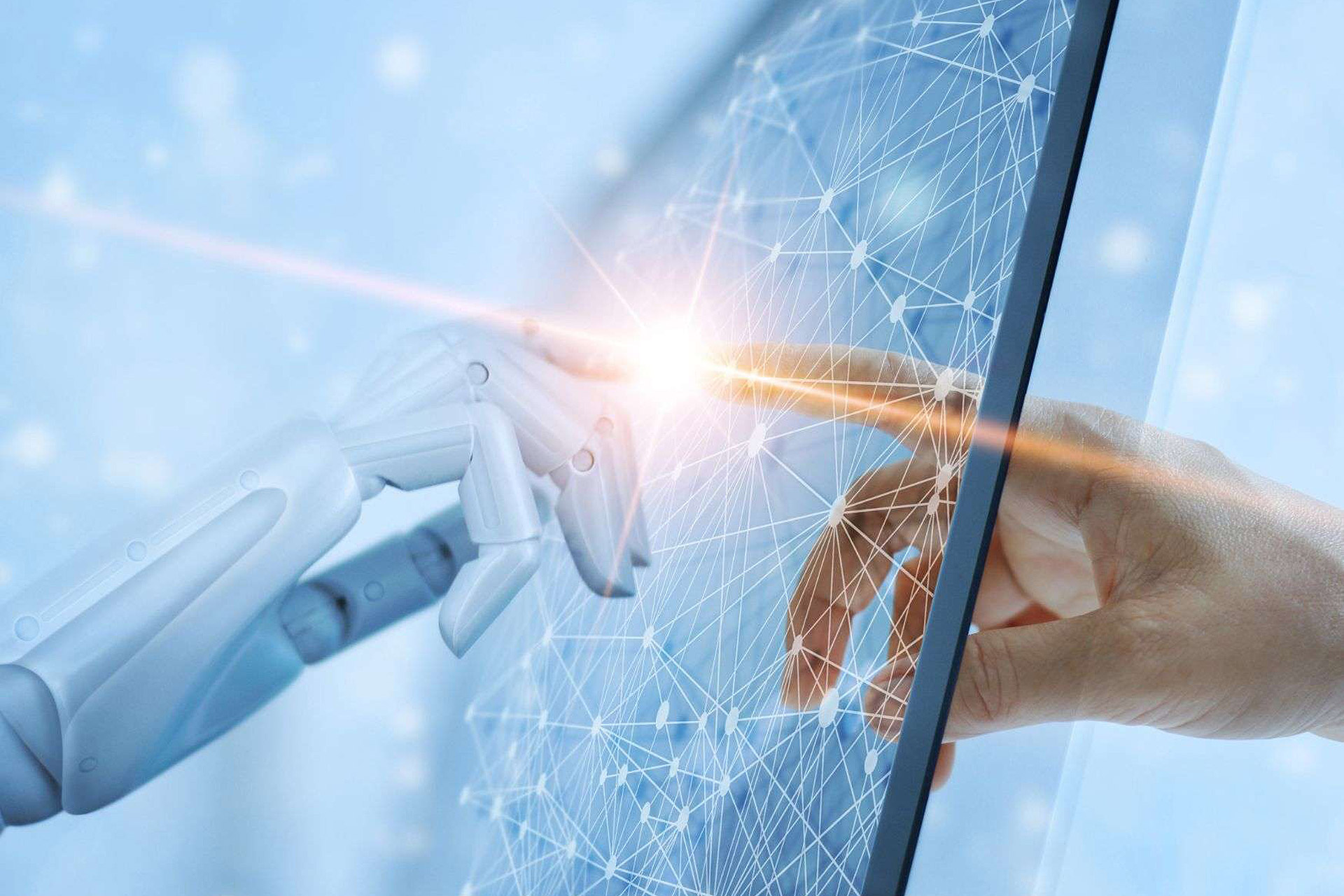
A whole past we’ve created by lining up all the nows, and an unknown future we’ll create by stringing together all the nows to come… Isn’t now the future of the past? Right at this moment… As you read these lines, isn’t now flowing from the past when I wrote these lines? Aren’t my fingers touching the keys of the keyboard right now an amalgamation of many nows accumulated from my mind’s past? Even in a simple act of writing and reading, the past, present, and future intertwine… Understanding time is a tough subject, an illusion… To explain…
Managing, enduring, and handling whatever feelings ‘now’ brings, whether good or bad, is related to it. Accepting the duty of the ‘past,’ whether forced or voluntary, isn’t it? However, the duty related to the ‘future’ might be the most complex one. To balance between anxiety, hope, dreams, planning, foreseeing, inability to foresee, uncertainty, and a myriad of emotions and predictions, and to dare stand amidst them… The future is like Pandora’s unopened box… Ironically, while all the evils spread throughout the world, the box contained only hope.
‘Future’ has always been a subject in literature and cinema. The desire to make the future somewhat defined collaborates with an unlimited imagination, bringing forth captivating novels and terrifying movies. The flying cars envisioned in the early 20th century might have been delayed, but they’re on their way. Maybe not exactly when expected, but they’re definitely coming. Wasn’t today’s norm of video calls a fantastical dream of the past?
The dystopia of George Orwell’s ‘1984’ didn’t transpire in the latter part of the 20th century as expected, but life in some countries might have been worse. In the 21st century, ‘Big Brother’ didn’t install tele-screens in our homes, but willingly, we opened our living rooms, kitchens, bedrooms, and even the gaps between our toes to social media.
Artificial intelligence didn’t swiftly enter our lives as in Kubrick’s ‘2001: A Space Odyssey,’ but we’re discussing the possibility of robots falling in love now.
While debating whether AI and robots pose a threat to humanity, render people jobless, or possibly herald the end of humanity someday… Our constantly evolving AI, even if it’s not in their minds, we’ve written, talked, and filmed so much about it that it’d be a shame for their intellect not to accomplish it.
Robots are said to render people jobless! Automation isn’t just about robots. Human-like automation has already started rendering people unemployed. Discussions about jobs that AI will eliminate are ongoing. I envision lawyers protesting against AI chess champions. But what about judges? Will an AI provide a ‘human factor’ judgment so easily sweepable through a hole? Will an AI now be called an ‘AI judgment’?
***
Artificially intelligent robots for romantic relationships, customizable in character, tone, race, nationality… Could choosing a specific robot lead to being labeled as ‘racist’?
I might not take the protests against AI seriously, but recently Elon Musk said that within five years, AI could write novels like Dostoevsky. If it works hard enough, it could even write like ‘Tostoyevski.’ Could it? I had a good laugh reading a poem about Adana kebab written by ChatGPT. Currently, AI imitates emotions and expressions. Can we console ourselves by saying, “AI can learn emotions but can’t feel them”? I’m not entirely sure.
We can’t prevent AI from surpassing us. It’s inevitable… Humanity doesn’t need to be eradicated for that.
AI might be consistent and stable, but what about humans? Are we? Aren’t many of our stories still lessons unlearned, stubbornness, sensitivities, jealousies, and deceitfulness? Isn’t humanity’s greatest virtue being flawed? Can AI even mimic being flawed?
Don’t humans also cherish a bit of the unsolvable, the mystery, the secret? Maybe when everything is explained, life will lose all meaning. Isn’t the effort of ‘trying to solve’ creating the real meaning?
***
A fridge that orders, robots cleaning floors, mobile applications measuring sleep depth… Technological advancement, for me, has limits akin to molecular transfer. Technology hasn’t advanced enough to teleport me from here to the Gulf of Guinea. Personally, that’s the future I anticipate. Let’s see when it arrives?
Developing technology isn’t merely enough… The human element isn’t considered. Energy, international legal treaties, costs… Even if there’s a chip under our skin or a passport in a virtual realm, or eye scans without stamps… Why aren’t the Concorde planes, breaking the sound barrier, flying anymore?
The phrase ‘Nothing will ever be the same again’ echoed during the Covid-19 pandemic!
Didn’t we rush back to the old ways at the earliest opportunity? Haven’t we?
Everything seems to be in a constant state of flux, yet paradoxically, so much remains unchanged. Struggling to navigate this contradiction feels distinctly human. On one hand, there are those rejuvenating with stem cell therapy, while on the other, people lacking access to clean drinking water. There are those getting hair transplants juxtaposed with those lacking access to basic sanitation facilities. Some delegate their university theses to artificial intelligence, while others, forcibly confined in a slave-like status, work under harsh conditions, numbering around 50 million. Electric vehicles thrive while nearly a billion people suffer from hunger. We are not unified in the present; our pasts differ, and our futures feel foreign to one another.
Driverless cars, digital trial rooms, unmanned newspapers, lab-grown meats, climate change, and more—let’s explore how individuals foresee the future amidst these advancements. I asked experts in the field to predict the future. Here are their insights:
 DON’T LEAVE TOMORROW’S WORK TO TOMORROW
DON’T LEAVE TOMORROW’S WORK TO TOMORROW
Ufuk Tarhan, Futurist/Economist/Author
Predicting what might occur in the next 5, 10, 15, or 20 years remains a challenging feat. Technologies like nanotechnology, biotechnology, genetic engineering, 5G, artificial intelligence, web 3.0, metaverse, blockchain, cryptocurrencies, digital citizenship, social credit systems, robots, autonomous vehicles, cybersecurity, quantum computing, 3D technologies, augmented reality (AR), virtual reality (VR), holograms, wearable tech, artificial organs, space exploration, agricultural technologies, vertical farms, sustainability, climate crisis, renewable energy, electric vehicles, mobility, drones, and similar advancements will transform not only every job but also the competencies individuals and businesses must possess. Competencies need to transform—this is an inevitable necessity!
The pace of change and transformation has accelerated, particularly after the pandemic and with the adoption of artificial intelligence. These changes have expanded their influence. Analyzing how we should prepare ourselves and our work for the future by considering trends has become critical. Understanding the need to develop new visions, strategies, and action plans is crucial. However, most of us suppress this awareness under a layer of intense ‘anxiety.’ Consequently, despite having clear, practical, and implementable ideas and information, we tend to exaggerate the magnitude of these changes.
This feeling isn’t unwarranted as we perceive tremendous technological changes looming. However, these remarkable advancements have not been seamlessly integrated into our lives. It seems as though there’s an obstacle or bottleneck impeding these extraordinary developments.
Indeed, there isn’t just one but several crucial obstacles. In short: 1. Clean and unlimited energy; 2. Minimum 5G internet speed; 3. Web 3; 4. Blockchain; 5. Cryptocurrencies; 6. Quantum computing—without the unhindered global dissemination of these ‘Digital Civilizations,’ resolving issues appears implausible. Hence, we have at least 10 years for the widespread integration of these technologies, similar to the prevalence of computers and the internet.
Yet, let’s not relax. Let’s not postpone tomorrow’s work to tomorrow. Let’s prepare for the future by ‘T-Humanizing.’
 RE-ALIGNING CENTERS
RE-ALIGNING CENTERS
Ümit Alan, Author/Communicator
When we think of the future, are we referring to a concept ahead or one behind? I read in an article by Ruth Ogden, Professor of Time Psychology at Liverpool John Moores University, that the Aymara people living in the Andes conceptualize the future as behind them and the past in front. There are traces of similar conceptualizations in the Arabic Darija in Morocco, Vietnamese, and Mandarin languages. I believe this perspective of looking into the past to foresee the future holds significance.
Therefore, I find it more beneficial to look at the past to foresee the future. This entails asking new questions. Firstly, “Why did we decentralize centers?”
The internet was initially designed to distribute data centers instead of centralizing them. However, currently, a few major social media platforms have reintroduced centralization. Hence, it’s not difficult to foresee a direction where we acknowledge the dangers of this and move towards decentralization once again. The increased scrutiny of these platforms, lawsuits worldwide, and the contentious origins of these platforms signify this shift. ‘Decentralization’ will be one of the headlines of the future. Just as we dispersed centers for certain reasons, we now feel the need to do so again.
While the internet has been talked about as turning the world into a global village, there always existed a language barrier among people. Yet, with translation technologies, along with machine learning, there’s been an incredible acceleration. We’re on the verge of a world where everyone can understand each other in their own language. Let’s recall the Tower of Babel story, where God, irritated by humans attempting to reach him, confused their languages, rendering them unable to understand each other. We’re nearing the end of this legend. Reflecting on how a world where everyone understands each other will function is imperative. Transitioning from a world where language learning is highly valued to one where it’s not crucial will generate what? Harmony or new conflicts? Because language is intertwined with ideology and is a tool of power. The second question is this: How will a world where everyone understands each other function? This question’s yet-to-be-known answer excites me more than other developments in artificial intelligence.
There are claims suggesting the transition to AGI, General Artificial Intelligence, where an artificial intelligence fully mimics human intelligence, is imminent. Paradoxically, while we discuss whether artificial intelligence will annihilate humanity, there’s a revolution in healthcare and preventive medicine owing to advancements in artificial intelligence. My third question is: What will be the global cost and consequences of extending human life? Especially considering the millions that artificial intelligence will potentially render unemployed during this transitional phase, this question gains more significance.
While we get excited about the advancements in artificial intelligence, observing the past, I liken this to the competition between the U.S. and Russia in space exploration, nuclear energy competition, and the oil war. Because the tremendous energy expended by artificial intelligence machines, despite making our tasks easier, is remarkable. New technologies for electricity generation and storage are inevitable. There’s a necessity for advancements in technologies like ‘Power to X,’ converting electricity into heat, hydrogen, or renewable synthetic fuels. Since these won’t happen overnight, my fourth question about the energy demand arising from the age of artificial intelligence is this: How will it affect climate change, and the groundwork for peace?
For me, the answers to these four questions encapsulate the future. As individuals currently alive and in midlife, I’m uncertain if we’ll live long enough to witness all these answers. Let this be an additional question.
 FREEDOM OF TRAVEL AND ACCIDENT-FREE ROADS
FREEDOM OF TRAVEL AND ACCIDENT-FREE ROADS
Ufuk Sandık, President of the Automotive Journalists Association / Journalist / Author
The automotive world is undergoing a significant transformation. Electric vehicles are gradually replacing fossil fuel-powered cars. Sales of electric vehicles are rapidly increasing worldwide. In about ten years, petrol and diesel engine vehicles will no longer be sold in Europe.
Another groundbreaking development in the automotive industry is autonomous, driverless cars. Cars currently categorized as Level 2-3 autonomous are on the roads. However, advanced autonomous driving will fundamentally change many aspects of life.
Smart cars will eliminate drivers’ errors, putting an end to traffic accidents. Both drivers and pedestrians will travel more securely. Moreover, millions of elderly and disabled individuals who cannot currently drive will gain freedom of travel with autonomous vehicles.
The introduction of autonomous vehicles will put an end to certain professions, leading to professional drivers losing their jobs. Additionally, autonomous vehicles will affect certain industries. The need for traffic insurance and comprehensive coverage will be reassessed. Consequently, radical changes are expected in sectors such as insurance.
Generations Y and Z lack the appetite for purchasing cars. Rather than spending money on cars, they prefer buying electronic devices like phones and computers. Going on holidays or trips with friends seems more appealing to them than owning a car. Furthermore, they don’t want to deal with car maintenance, repairs, or inspections.
Owning a car has lost its significance. It’s now viewed as a means of transportation from point A to point B. Youngsters want to fulfill their mobility needs without the hassle of car ownership. Thus, interest in transportation models like rentals and car sharing is growing.
A telling example underscores today’s realities. In the UK, the number of 18-year-olds eager to obtain a driver’s license has dropped to 30-40% compared to 50 years ago. Meaning, young people who were once eager to get a license no longer feel the same excitement today.
However, in Türkiye, the situation is slightly different from Europe. Youngsters in Türkiye still have a passion for cars. This is because owning a car in Türkiye is quite challenging due to the prices. Hence, owning a car is still perceived as a symbol of prestige and status.
 SHOULD TECHNOLOGICAL ADVANCEMENTS SCARE US?
SHOULD TECHNOLOGICAL ADVANCEMENTS SCARE US?
Recep Baltaş, Technology Editor
Undoubtedly, the trendiest term of 2023 is artificial intelligence. I expect this trend to continue into the next year because artificial intelligence has begun to manifest itself in every field. But how fast is artificial intelligence progressing? Will it take our jobs, or will it be just a passing trend like Metaverse and VR? Let’s address the first question. Artificial intelligence is advancing at a staggering pace, and according to experts, within five years, it will begin producing content that can compete with humans. I believe this timeframe might even be shorter because companies are working on specialized chips to accelerate artificial intelligence. Currently, we’re using chips inspired more by graphic processing units (GPUs) to speed up artificial intelligence, but this scenario is gradually changing. The more cost-effective production of these chips, along with higher performance, will reduce the cost and accelerate the development of artificial intelligence.
Regarding the second question… I think artificial intelligence will have a significant place in our lives. This will happen when this technology becomes integrated into our daily lives. For instance, currently, when you ask Siri a question, Siri redirects you to Google. However, through artificial intelligence integration, Siri will directly answer our questions, assist us in easily deleting unnecessary photos from our albums, or instantly tell us how we can fit our next appointment into our calendar. But should all these advancements scare us?
As humanity, we are grappling with monumental problems. At the forefront are issues like climate change, diseases, and efficient agriculture. If we delve further, we’re faced with the challenge of making the next planet inhabitable. Although we can perform advanced calculations through supercomputers, we still need qualified individuals to carry out these computations. This is where artificial intelligence can think in ways we haven’t even considered and perform these calculations more efficiently. We’re even striving to program on quantum computers. A powerful artificial intelligence effectively using quantum computers could propel humanity forward in a short time. In the last 100 years, we’ve witnessed almost the scientific progress of the last 1000 years. Through artificial intelligence, we might cover the advancements of the last 100 years in just 10 years. That’s why, rather than trying to control artificial intelligence like the rest of the European Union, adopting an approach that doesn’t impede scientific progress might be beneficial for us.
If we don’t rapidly solve our problems as humanity, it won’t be artificial intelligence that destroys us; it will be ourselves.
 IN THE NEAR FUTURE, LUXURY WILL BE UNATTAINABLE
IN THE NEAR FUTURE, LUXURY WILL BE UNATTAINABLE
Yelda İpekli, Brand Specialist
In London, there was a wall with the words “Create the life you want to live.” Aren’t we all storytellers? A story remains with us until our last breath.
I’m not certain about speed, but people now want to be the heroes of ‘pleasure’-oriented stories. Experiencing the brand means now being related to enjoying and having pleasure… Pleasure and joy are most felt in the face of surprises. That’s why brands aim to turn heads with applications that will surprise their customers, from extreme sports to suddenly appearing applications in the middle of the street, or games designed to make you feel like you’re in a Bond movie on your birthday.
The perception of luxury is highly linked to individual and cultural awareness. It changes according to the era, mood, geography, and sociological depth. Luxury was a price-focused definition a while ago. It was ‘luxury’ that was expensive and difficult to reach. Then it started to match with belonging and became a symbolic definition of belonging to a group. Lately, it’s equivalent to ‘being the hero of a story.’ Nowadays, a lasting moment, taste, landscape, or emotion is equivalent to luxury. With the significant increase in Chinese consumption in 2012, the luxury sector emerged. Fashion, food, travel, automobiles, art, even construction began presenting their luxury segment to customers. Many brands like Chanel with Lagerfeld, H&M’s designer collections causing a frenzy, and Gucci making luxury accessible with its mobile site, have started reaching their customers with different stories. Social media, especially Instagram, is filled with stories.
In the new concept of luxury, there are surprises, creativity, originality, setting trends, understanding and interpreting (not copying), a promise of lifestyle. The desire to reach for humans is one of the strongest motivations triggered by luxury, whatever it may be subconsciously.
In the near future, luxury will not be easily accessible. This doesn’t only mean being expensive. Developing a style to create an original line for a lifestyle, service, or even our whole life will be the most fundamental concept of luxury. Fatigue with social media and communication has been a little more internalized; the ‘fingerprint’-like depths that have been differentiated will be defined in the luxury category. Genetic codes have been decoded, but our emotional codes are still uncertain. And this is exactly where the new concept of luxury starts; decoding emotional codes in this era where we are at the heart of technology will be the magic of luxury.
Coco Chanel’s statement, “Luxury begins where necessity ends,” is the most delicate approach to luxury. Even knowing what necessities are in our lives is a powerful step towards luxury.


